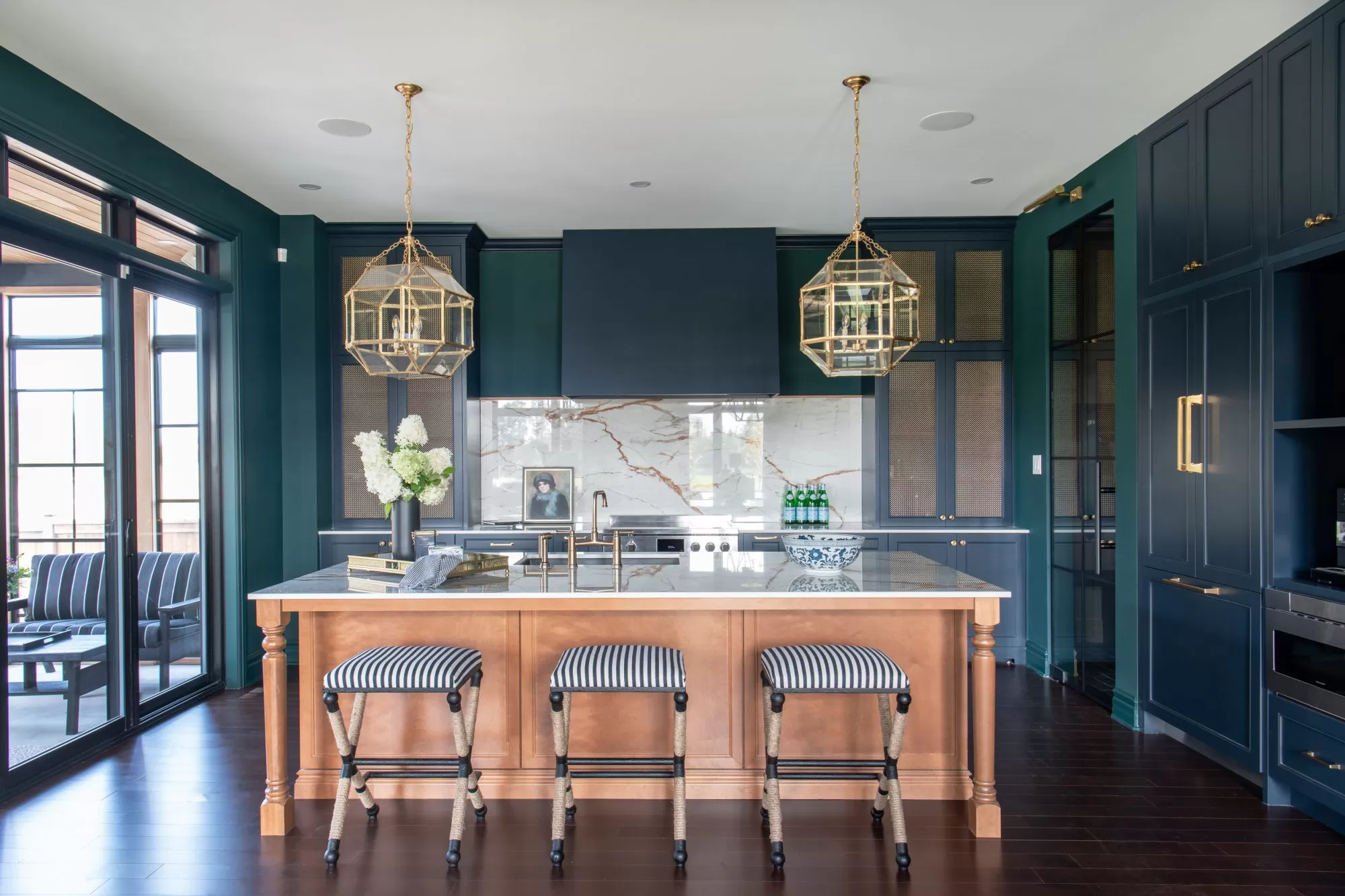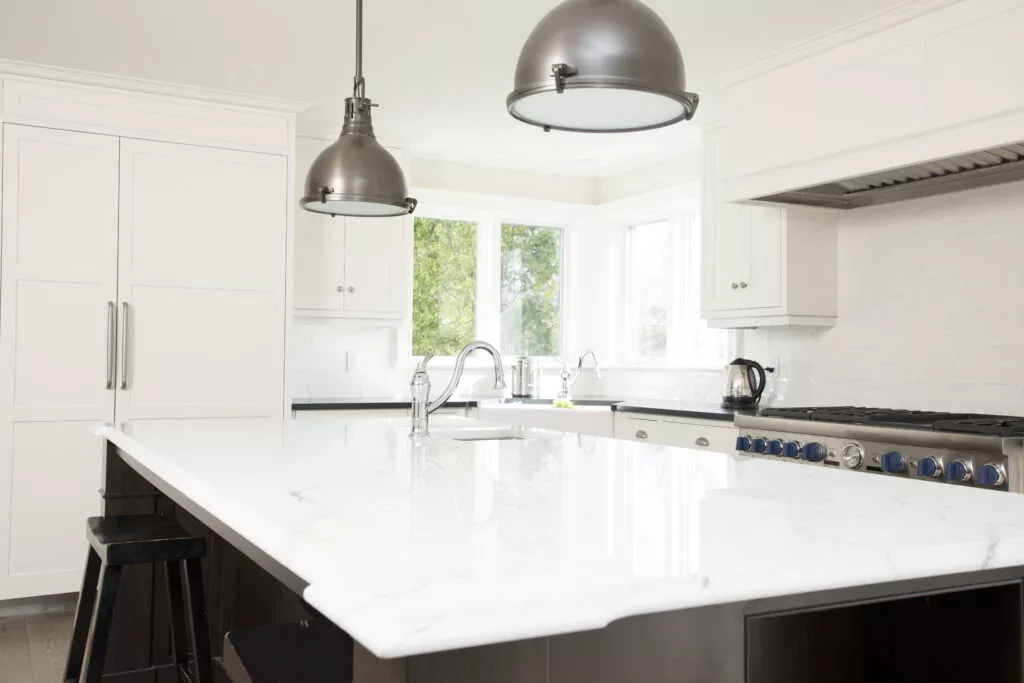Sintered Stone Is A Kind of “Super Stone”
When it comes to choosing the perfect countertop material, homeowners and designers are increasingly turning to ultracompact surfaces like Dekton and Neolith. These innovative materials, also known as “sintered stone”, are redefining durability, aesthetics, and functionality in kitchens and bathrooms. But what makes ultracompact surfaces stand out? In this post, we’ll explore the benefits of Dekton and Neolith and why they’re a top choice for modern countertops.
What Are Ultracompact Surfaces?
Ultracompact surfaces are engineered materials made from a blend of natural raw materials, such as quartz, porcelain, and glass, subjected to extreme heat and pressure. This process, called “sintering”, mimics the natural formation of stone over thousands of years but achieves it in hours. The result is a dense, non-porous, and incredibly durable surface. Leading brands like Dekton (by Cosentino) and Neolith have perfected this technology, offering countertops that combine beauty with unmatched performance.
Here are the key benefits of Dekton and Neolith in a countertop application.
1. Exceptional Durability
Dekton and Neolith are engineered to withstand the rigors of daily use. With a Mohs hardness rating of around 7, these surfaces are highly resistant to scratches and abrasions, making them ideal for busy kitchens where knives, pots, and pans are in constant use. You can chop vegetables directly on the surface without worrying about damage. Unlike natural stones like marble, they resist wear from gritty substances like sugar or salt, ensuring long-lasting beauty.
2. Heat and Fire Resistance
One of the standout features of ultracompact surfaces is their ability to handle extreme temperatures. Dekton can withstand temperatures up to 800°C, while Neolith is equally heat-resistant, allowing you to place hot pans or slow cookers directly on the countertop without fear of scorching, cracking, or burning. This makes them perfect for both indoor kitchens and outdoor cooking spaces. Additionally, both materials are fireproof, adding an extra layer of safety.
3. Stain and Chemical Resistance
Thanks to their non-porous nature, Dekton and Neolith have near-zero absorption, making them highly resistant to stains from spills like coffee, wine, or grease. Even harsh chemicals like bleach or oven cleaners won’t damage the surface, simplifying cleanup. A quick wipe with soap and water is often enough to keep these countertops pristine, reducing the need for specialized cleaners.
4. UV Resistance for Indoor and Outdoor Use
Unlike quartz, which can fade under prolonged sun exposure, Dekton and Neolith are UV-resistant, making them ideal for outdoor kitchens or sunlit indoor spaces. Their colors remain vibrant over time, even in harsh climates, from freezing winters to scorching summers. This versatility allows seamless design continuity between indoor and outdoor areas.
5. Eco-Friendly and Sustainable
Both Dekton and Neolith are environmentally conscious choices. Neolith is made from 100% natural materials and incorporates recycled content, while Dekton is produced with 100% renewable electricity and is cradle-to-grave carbon neutral. Both materials are fully recyclable, reducing their environmental footprint. For homeowners prioritizing sustainability, these countertops offer a guilt-free blend of style and responsibility.
6. Design Versatility
Ultracompact surfaces come in a wide range of colors, patterns, and textures, mimicking natural stone, wood, or concrete. Neolith offers marble-like designs like Calacatta, while Dekton provides earthy, metallic, or solid-color options. Available in thicknesses from 4mm to 30mm and large slab sizes (up to 3200 x 1440 mm), they allow for seamless installations with minimal joints, perfect for expansive kitchen islands or sleek backsplashes.
7. Low Maintenance
Say goodbye to sealing or polishing. Dekton and Neolith require minimal maintenance due to their non-porous, stain-resistant surfaces. Everyday cleaning with mild soap and water keeps them looking new. For stubborn stains, a biodegradable cleaner or a paste of Bar Keeper’s Friend can handle the job without damaging the surface.
8. Hygienic and Food-Safe
The non-porous nature of ultracompact surfaces makes them hygienic and safe for direct food contact. Unlike natural stones with pores that can harbor bacteria, Dekton and Neolith resist microbial growth, making them a smart choice for health-conscious households.
Contact us or request a quote to view our sintered stone options in our showroom. And don’t forget to subscribe to our Youtube channel.








